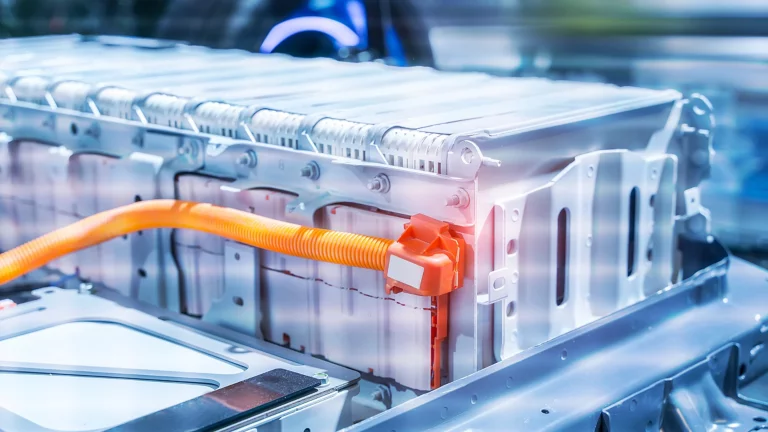Hybrid cars have gained significant popularity over the past few years due to their impressive fuel efficiency, reduced emissions, and the promise of long-term savings. One of the most common questions prospective buyers have is about the longevity of hybrid car batteries. Understanding the lifespan of these batteries is crucial for making an informed purchasing decision and ensuring the longevity of your vehicle. In this comprehensive guide, we’ll explore the factors that influence the lifespan of hybrid car batteries, the average duration they last, maintenance tips, and what to do when it’s time to replace them.
Understanding Hybrid Car Batteries
Hybrid car batteries are a vital component of the hybrid powertrain system. Unlike conventional vehicles that rely solely on an internal combustion engine, hybrid vehicles use a combination of a gasoline engine and an electric motor. The battery stores energy that powers the electric motor, which in turn helps reduce fuel consumption and emissions. There are primarily two types of hybrid batteries: Nickel-Metal Hydride (NiMH) and Lithium-Ion (Li-ion).
Nickel-Metal Hydride (NiMH): These batteries have been the standard in hybrid vehicles for many years. They are known for their durability and ability to withstand a wide range of temperatures. However, they are heavier and less energy-dense compared to their Li-ion counterparts.
Lithium-Ion (Li-ion): Li-ion batteries are becoming increasingly popular in modern hybrid vehicles. They are lighter, more energy-dense, and have a longer lifespan compared to NiMH batteries. However, they are also more expensive to produce and replace.
Factors Influencing the Lifespan of Hybrid Car Batteries
Several factors can affect how long a hybrid car battery will last:
- Driving Habits: How you drive can significantly impact the longevity of your hybrid battery. Frequent short trips, aggressive driving, and heavy reliance on the electric motor can shorten the battery’s lifespan.
- Climate: Extreme temperatures, both hot and cold, can affect battery performance and longevity. Hybrid batteries tend to last longer in moderate climates.
- Maintenance and Care: Regular maintenance and proper care can extend the life of your hybrid battery. This includes keeping the battery cool, maintaining proper tire pressure, and following the manufacturer’s maintenance schedule.
- Type of Battery: As mentioned earlier, NiMH and Li-ion batteries have different lifespans. Li-ion batteries generally last longer but are more expensive to replace.
- Age and Mileage: Like all vehicle components, hybrid batteries degrade over time and with usage. Higher mileage and older batteries are more likely to experience reduced performance.
Average Lifespan of Hybrid Car Batteries
The average lifespan of a hybrid car battery can vary depending on the make and model of the vehicle, driving conditions, and maintenance. However, most hybrid batteries are designed to last between 100,000 to 150,000 miles or about 8 to 10 years. Some manufacturers, such as Toyota and Honda, offer warranties that cover hybrid batteries for up to 8 years or 100,000 miles, whichever comes first. In some cases, hybrid batteries have been known to last even longer, with some owners reporting over 200,000 miles on the original battery.
Signs That Your Hybrid Battery Needs Replacement
As hybrid car batteries age, they may begin to show signs of wear and reduced performance. Here are some common indicators that it might be time to replace your hybrid battery:
- Decreased Fuel Efficiency: One of the first signs of a failing hybrid battery is a noticeable drop in fuel efficiency. If you find yourself refueling more often than usual, it could be a sign that the battery is no longer holding a charge effectively.
- Frequent Charging: If your hybrid vehicle relies more on the gasoline engine and requires frequent charging, it may indicate that the battery’s capacity has diminished.
- Warning Lights: Most hybrid vehicles are equipped with a warning light or indicator on the dashboard that alerts you to battery issues. If this light comes on, it’s essential to have your vehicle inspected by a professional.
- Unusual Noises: Strange noises coming from the battery compartment or the electric motor could be a sign of a failing battery. It’s important to address these noises promptly to prevent further damage.
- Reduced Electric Range: If you notice a significant reduction in the electric-only range of your hybrid vehicle, it may indicate that the battery is losing its ability to hold a charge.
Maintaining Your Hybrid Car Battery
Proper maintenance and care can help extend the life of your hybrid car battery. Here are some tips to keep your battery in optimal condition:
- Regular Inspections: Schedule regular inspections with a certified technician to check the health of your battery and other components. Early detection of issues can prevent more significant problems down the line.
- Keep It Cool: High temperatures can accelerate battery degradation. Park in shaded areas, use sunshades, and ensure the battery cooling system is functioning correctly.
- Moderate Driving Habits: Avoid aggressive driving and try to maintain a consistent speed. Smooth acceleration and braking can reduce the strain on your battery.
- Follow Manufacturer Guidelines: Adhere to the maintenance schedule and guidelines provided by your vehicle’s manufacturer. This includes routine checks and any recommended software updates for the battery management system.
- Maintain Proper Tire Pressure: Under-inflated tires can increase the workload on your battery. Regularly check and maintain the correct tire pressure to improve fuel efficiency and reduce battery strain.
Replacing a Hybrid Car Battery
When it comes time to replace your hybrid car battery, there are several options to consider:
- New Battery: Purchasing a new battery from the manufacturer or an authorized dealer ensures you get a high-quality replacement with a warranty. However, this option can be expensive.
- Refurbished Battery: Refurbished batteries are a more affordable option. They have been reconditioned and tested to ensure they meet performance standards. However, their lifespan may be shorter than a new battery.
- Aftermarket Battery: Aftermarket batteries are available from third-party manufacturers. While they can be cost-effective, it’s essential to research and choose a reputable brand to ensure quality and compatibility.
- Battery Leasing: Some manufacturers offer battery leasing programs, where you pay a monthly fee for the battery. This option can be beneficial if you plan to keep your vehicle for a short period.
Hybrid car batteries are designed to last for many years and miles, providing significant fuel savings and environmental benefits. By understanding the factors that influence battery longevity, maintaining proper care, and knowing the signs of a failing battery, you can ensure your hybrid vehicle remains efficient and reliable. When it’s time to replace the battery, consider your options carefully to find the best solution for your needs and budget. With the right approach, you can enjoy the benefits of hybrid driving for many years to come.



